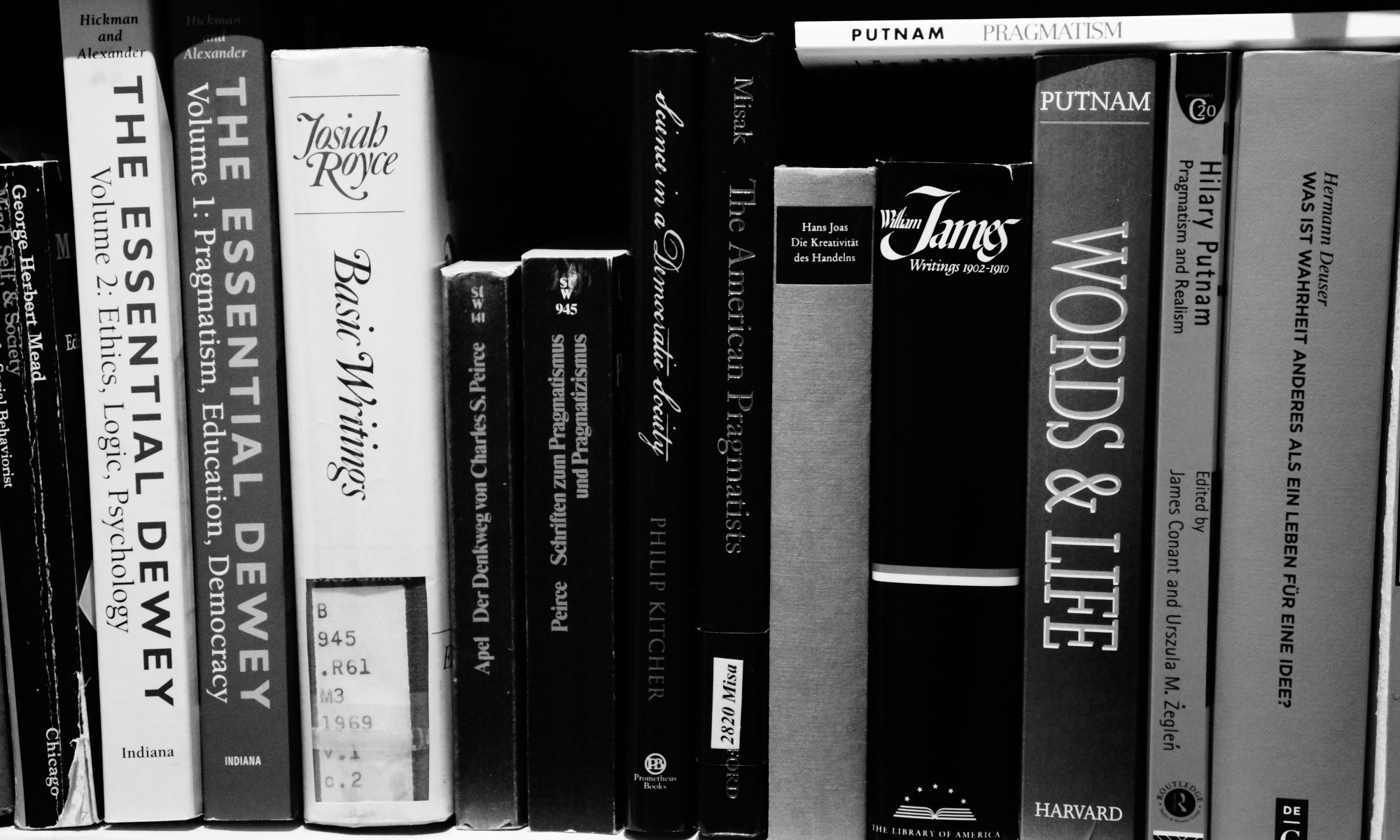Women have been and continue to be underrepresented in the history of philosophy. Unfortunately, pragmatism is not an exception to this current trend. The genealogy of pragmatism pays less attention to the works of those women who contributed to the movement. Jane Addams, Charlotte Perkins Gilman, Alice Hamilton, Mary Parker Follett, Anna Julia Cooper, Ella Flagg Young, Lucy Sprague Mitchell, Christine Ladd-Franklin, Mary White Calkins, Florence Kelley, Victoria Welby and many others are only just resurfacing in the literature, after having been cast into oblivion for decades. For those women, to pursue an academic career or to live as public intellectuals was at best a challenge, if not an impossibility.
One century later, the situation is only slowly changing. Women represent almost half of the community of professional philosophers. However, women keep being less quoted, less considered and held less creditable as subjects or objects of knowledge as their male peers. The aim of this conference is thus to celebrate the past and current work of women researching and advancing philosophy in a pragmatist tradition and highlight their ongoing contributions to specialist academic research as well as public discourse.
The conference will also promote mentoring, networking, and sharing good practice between women working on any aspect of the pragmatist tradition, broadly construed. As an output and lasting legacy of the meeting, we plan to create a virtual archive of women currently engaged in research on pragmatism, which will strengthen cooperation and facilitate communication between scholars. Lastly, the reunion of women pragmatists should lead to the adoption of some resolutions to correct gender bias in research, teaching and cooperation analogous to other associations of women philosophers.
Persons who self-identify as women and gender non-conform persons are encouraged to send a 300-word abstract prepared for blind-peer review to nsmiras@ub.edu before the 30th of September within one of the following research areas (please give the number of the area in which you wish to be considered):
1. HISTORY, GENEALOGIES OF PRAGMATISM, PRAGMATISM AND OTHER PHILOSOPHICAL TRADITIONS
2. LOGIC, METAPHYSICS, EPISTEMOLOGY AND PHILOSOPHY OF SCIENCE
3. AESTHETICS, THEOLOGY, RELIGION, SPIRITUALITY
4. PHILOSOPHY OF LANGUAGE, PHILOSOPHY OF MIND, PHILOSOPHY OF PSYCHOLOGY
5. SOCIAL PHILOSOPHY, PHILOSOPHY OF EDUCATION, ETHICS
6. GENDER, RACE, SEX, INTERSECTIONAL ANALYSIS
7. POLITICAL PHILOSOPHY, PHILOSOPHY OF LAW, PHILOSOPHY AND ECONOMICS
8. INTERDISCIPLINARY APPROACHES TO PRAGMATISM
Attendance is open to all persons interested in pragmatism.
Deadline for submission: September 30, 2019.
Communication of acceptance/rejection: November 10, 2019
Webpage: womenpragmatistsbcn.wordpress.com
Location: Universitat de Barcelona
Date: 28-30 January 2020





